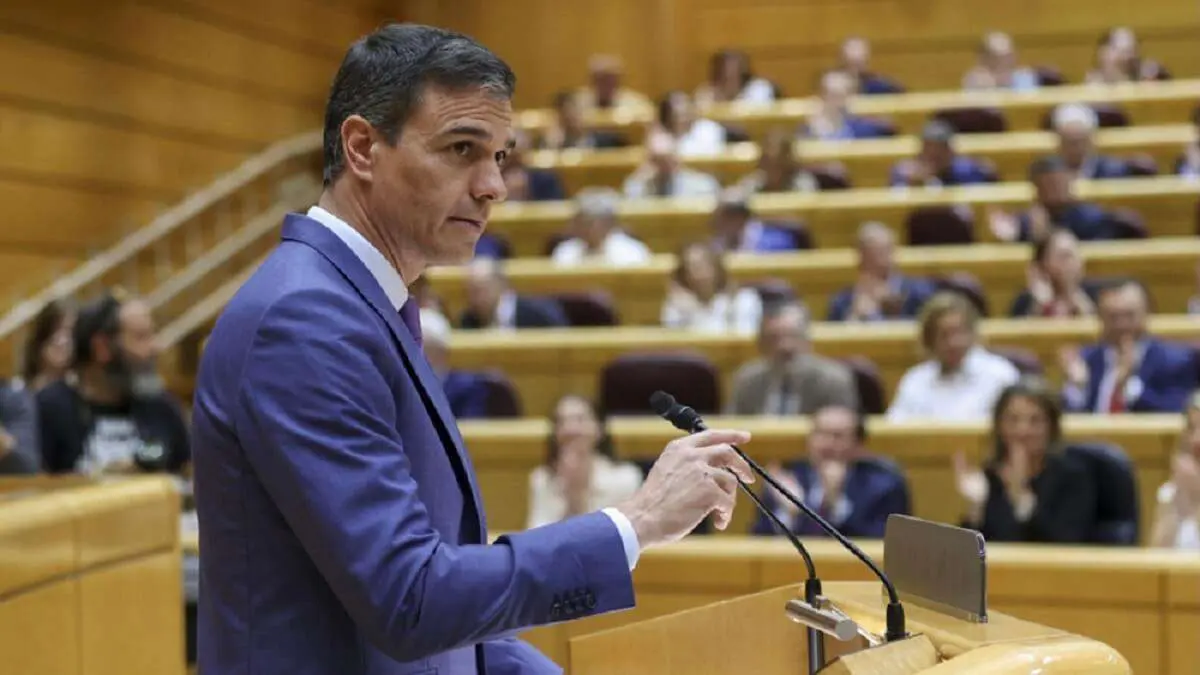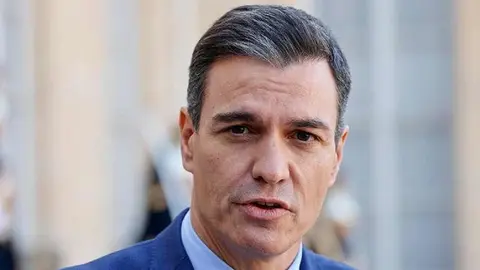Crisis of governance

Several polls indicate that Spaniards are fed up with the political tension and that the positions of the PP and PSOE are diametrically opposed. And that everyone believes they deserve to run the country's affairs in an exclusive manner. To a certain extent this is legitimate. The problem arises when tension becomes a way of doing politics.
With the "Go away, Mr González", back in 1994, Aznar harassed and brought down a socialist government in free fall. A tension that intensified when Zapatero won the elections in 2004 after the farce of the Iraq war and, above all, after the 11M attacks. As a result, Zapatero's government is described as illegitimate by Rajoy's PP for two long legislatures, having managed to put an end to ETA. An achievement that is not only minimised, but Rubalcaba is accused of collaborating with this gang and of belittling the associations of victims of terrorism.
When the alternation of power propels Rajoy to power, after the 2008 crisis, the confrontation is now focused on the "And you more" as corruption flourishes. Meanwhile, PP and PSOE blame each other; showing themselves incapable of agreeing on key issues such as the reactivation of the economy coming from a negative GDP, cleaning up a severely damaged financial system, massive bankruptcies and layoffs, painful evictions and unprecedented poverty.
The outbreak of social discontent, embodied in the 'indignados' and the 15M movement, has set the streets and squares ablaze with mass protests calling for democratic regeneration. But the PP and PSOE play down the public anger and the power of the networks. They do not take the matter lying down and continue on the path of political and institutional bankruptcy.
The advent of Podemos (2014) and C's, which leapt from Catalonia to Madrid, and later Vox, will drain votes from the PP and PSOE, putting an end to the two-party system. Totem revolutum, PNV, Junts, ERC and EH Bildu included, increase the row with cross radicalist messages. All against all. And everything is politicised (Justice, Toledo Pact, Health, Education, ETA, etc.). A division that the Catalan pro-independence supporters take advantage of to hold a referendum in 2017 and then announce the Unilateral Declaration of Independence of Catalonia (DUI).
When, in a 2018 ruling, the Gürtel case, a plot to illegally finance the PP, broke out, Sánchez came to power following a motion of censure supported by a majority in the Congress of Deputies. Once in opposition, PP, Vox and the now defunct C's return to confrontation. The tension has escalated, and this time with Casado, who describes Sánchez's government as illegitimate.
It is clear that the emergence of Podemos and Vox complicates everything. In the last five general elections, the vote count only shows the polarisation of the vote, with no clear majority. Radicals, left and right, become the necessary wild cards to open coalition governments at the national level, PSOE-UP, or at the level of municipalities and autonomous communities, PP-VOX.
The first coalition government in Spain's recent democracy will take place on 7 January 2020 between PSOE, which wins votes, and UP. But, at present, there are more than 200 mayorships in coalition of the PP, having lost the elections, with Vox. That is, the Autonomous Communities of Andalusia (2018), Madrid, Murcia and Castilla y León (2019). Or the most recent ones of 23J, Extremadura or Aragon, although here the PP wins in votes as in the Balearic Islands, Valencia or Murcia. In the latter, negotiations with Vox continue.
That said, it should be noted that the dismissal of Casado by Feijóo does not lower the political tension. And the non-renewal of the General Council of the Judiciary angers Sánchez and institutional communication between PP and PSOE is interrupted, generating more confrontation if possible, touching the waterline of democratic coexistence.
It is true that "sanchismo", which I interpret as those changes of opinion by the president of the government, as in the case of the "yes is yes" law or Sánchez's turnaround on the Moroccan Western Sahara issue, among others. It is said, and rightly so, that rectifications are wise. In fact, the rapists are being stopped and Spanish-Moroccan relations are improving, although his management is reproached by the main opposition party, the PP. This shows the extent of the political rift between the two state parties.
Sánchez's successful strategy in calling the 23J elections is to place the PP at the centre of its own contradictions, forcing Feijóo to negotiate, in the midst of the electoral campaign, with Vox in city councils and autonomous communities. And so it is. The PP wins votes, but without any possibility of governing. Nor does it join with Vox, which loses seats just like Sumar. And it is rejected by the PNV and Junts.
After the "face to face", the PP rises in the polls. And, as Spain prepares for the change of cycle, Feijóo gets into several puddles and focuses the rest of the campaign on the same issues of tension that citizens are fed up with. And without any concrete proposals befitting a winner.
Of course, the 23J result now opens a worrying period of instability. It seems that the elections only serve for Feijóo to measure his solitude. But Sánchez does not have it easy either. He must deal with an extremely complex political spectrum.
Sumar, PNV, EH Bildu, BNG, UPN, CC, ERC or Junts, almost all of them will want to be in the government. UP the first, as they threaten to break the discipline of the vote. The others will want their demands to be accepted, which are none other than the maximum development of the statutes of their respective autonomous regions, the cancellation of historical debt, the reform of their financing or to carry out the utopia of a referendum. The truth is that nothing can be agreed outside the Spanish Constitution of 1978.
The unanimous opinion is that, even if a coalition of the left were to take place, the legislature would be highly compromised by the future of the demands and the national and international governmental agenda.
Given the level of confrontation, PP and PSOE are today at a point of no return. And incapable of presenting a coalition government between the two. If this were the case, Vox would disappear and Sumar would return to being a marginal residue of the PCE with barely two deputies. On the other hand, coalitions between left and right are common in the best European democracies. An alternative that, of course, Sánchez is not contemplating, although Feijóo is hoping for it.
The real reason for what is happening lies in politicians who crave power above all else. At the same time, everyone is under the illusion that they do not feel complicit in the prevailing political instability.
In view of a probable repetition of the elections in the face of a failed investiture, even if Sánchez has won the presidency of Congress, everyone is creating their own narrative. A narrative that would in turn be the slogan of the next campaign of one party or the other. Knowing that the party that breaks the governability would end up being crushed by voters fed up with an already endemic political tension.



